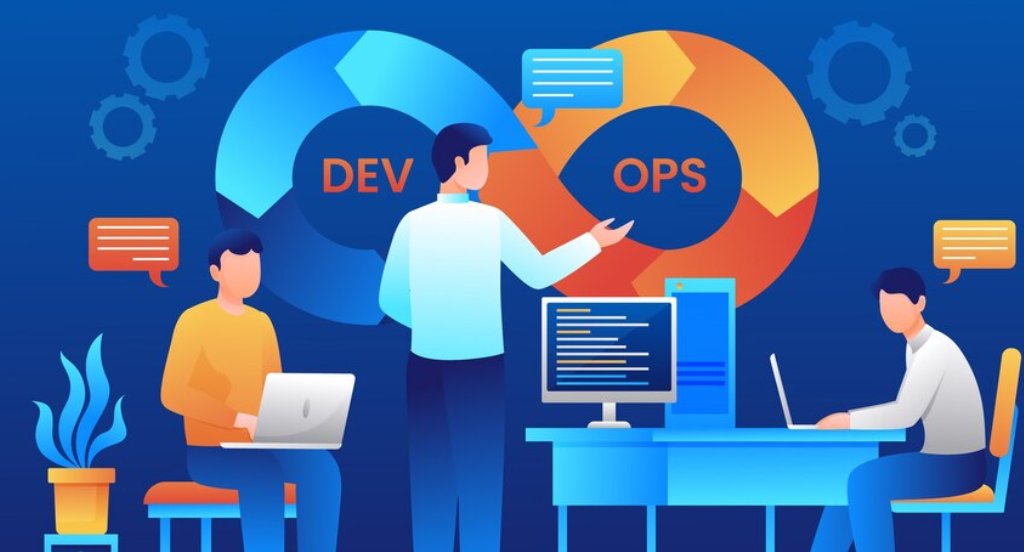Understanding the DevOps Lifecycle: Key Stages and Practices
- By Dipayan Sharma
- Blog
- 1.4k
- 0 Comments
Career
Introduction to DevOps
DevOps is a set of practices that combines software development (Dev) and IT operations (Ops). The goal is to shorten the development lifecycle and provide continuous delivery with high software quality. DevOps certification courses are increasingly popular as they provide a structured approach to learning and mastering DevOps practices.
Benefits of DevOps Certification
- Career Advancement: A DevOps certification can significantly enhance your career prospects. Employers recognize the value of certified professionals who can bridge the gap between development and operations.
- Skill Enhancement: DevOps training equips you with a wide range of skills, including automation, continuous integration, and deployment, making you a valuable asset to any organization.
- Industry Recognition: Certification provides industry recognition, validating your expertise in DevOps practices and tools.
Key Stages of the DevOps Lifecycle
Continuous Development : Continuous development is the initial stage of the DevOps lifecycle, focusing on the planning and coding of the software. This stage includes everything from gathering requirements to writing the code. Tools like Git and Jira are commonly used to manage the development process.
Continuous Integration : Continuous integration (CI) is a practice where developers frequently merge their code changes into a central repository. Automated tests are run to ensure that the new code integrates well with the existing codebase. CI tools like Jenkins and Travis CI are crucial in this stage, enabling the detection of integration issues early in the development process.
Continuous Testing : In this stage, the integrated code is continuously tested using automated testing tools like Selenium and TestNG. Continuous testing ensures that the code is stable and meets the required quality standards. This practice reduces the chances of bugs and errors in the production environment.
Continuous Deployment : Continuous deployment involves the automated release of code to the production environment. Tools like Docker and Kubernetes play a significant role in this stage, facilitating seamless and efficient deployment of applications. Continuous deployment ensures that new features and updates are delivered to users quickly and reliably.
Continuous Monitoring : Continuous monitoring involves tracking the performance and health of the application in the production environment. Monitoring tools like Nagios and Prometheus help in identifying performance bottlenecks, security threats, and other issues. Continuous monitoring ensures that the application runs smoothly and efficiently.
Continuous Feedback : Continuous feedback is integral to the DevOps lifecycle, providing insights into the user experience and performance of the application. Feedback loops help in identifying areas for improvement and ensuring that the application meets user expectations. Tools like Grafana and Kibana are commonly used for gathering and analyzing feedback.
DevOps Best Practices
- Automation : Automation is a cornerstone of DevOps practices. Automating repetitive tasks like testing, deployment, and monitoring reduces manual effort, minimizes errors, and accelerates the software delivery process.
- Collaboration Effective : collaboration between development and operations teams is essential for the success of DevOps. Tools like Slack and Microsoft Teams facilitate communication and collaboration, ensuring that everyone is aligned and working towards common goals.
- Continuous Improvement : DevOps is an iterative process that focuses on continuous improvement. Regular retrospectives and feedback loops help teams identify areas for improvement and implement changes to enhance the software delivery process.
DevOps Tools
A variety of tools are used in DevOps to automate processes, ensure continuous integration and deployment, and monitor applications. Some of the essential DevOps tools include:
- Git: Version control system for tracking code changes.
- Jenkins: CI/CD tool for automating the build and deployment process.
- Docker: Containerization platform for creating, deploying, and running applications in containers.
- Kubernetes: Container orchestration platform for managing containerized applications.
- Selenium: Automated testing tool for web applications.
- Nagios: Monitoring tool for tracking system performance and availability.
- Grafana: Analytics and monitoring platform for visualizing metrics and logs.
Level up your tech expertise in Bangalore with our intensive DevOps certification program, designed to equip you with the latest tools and skills for success in the industry.
DevOps Training in Bangalore
Bangalore is a hub for IT and software development, making it an ideal location for DevOps training. Several institutes offer comprehensive DevOps certification courses, catering to different levels of expertise.
Best DevOps Training Institutes in Bangalore
- Best DevOps Training Institute in Marathahalli Bangalore
- Best DevOps Training Institute in BTM Layout Bangalore
- Best Online DevOps Training Institute
- Best Offline DevOps Training Institute
DevOps Certification Courses
- DevOps Certification Course in Jayanagar Bangalore
- AWS DevOps Course in Bangalore
- Azure DevOps Test Plan Course in Bangalore
- Cloud DevOps Courses in Bangalore
Course Details
- DevOps Course Fees in Bangalore: Course fees vary depending on the institute and the course duration.
- DevOps Course Duration in Bangalore: Courses typically range from a few weeks to a few months, depending on the level of depth and coverage.
- DevOps Course with Placement in Bangalore: Many institutes offer placement assistance to help students secure jobs after completing the course.
Job Opportunities and Career Advancement
Investing in DevOps certification and training opens up numerous job opportunities. Certified DevOps professionals are in high demand in various industries, including IT, finance, healthcare, and e-commerce. Job roles include DevOps Engineer, Automation Engineer, Release Manager, and Site Reliability Engineer (SRE).
Conclusion:
Understanding the DevOps lifecycle is crucial for anyone looking to pursue a career in DevOps. The key stages and practices involved in DevOps ensure efficient software delivery and high-quality applications. Investing in a DevOps certification course, especially from a reputed institute in Bangalore, can significantly enhance your career prospects and skill set. With the right training and certification, you can become a valuable asset in the ever-evolving field of DevOps.


